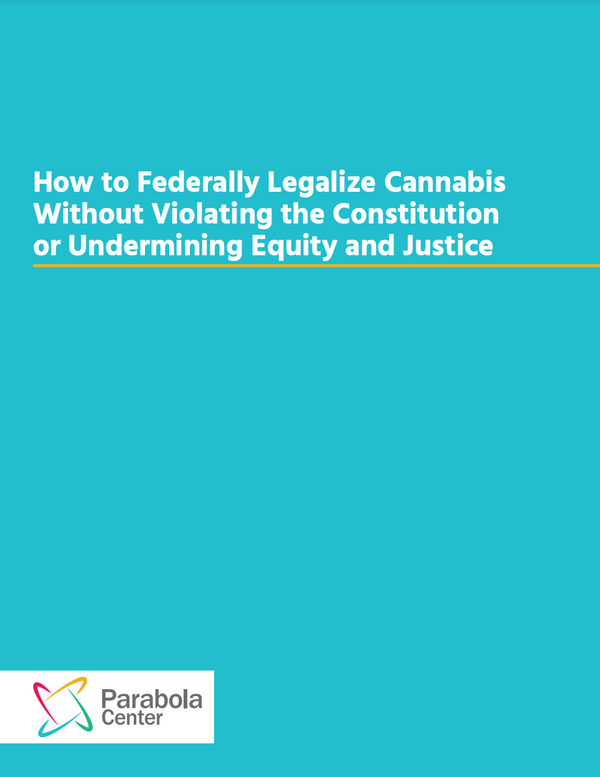Parabola Center for Law and Policy
États-Unis : Comment légaliser le cannabis au niveau fédéral sans violer la Constitution ni porter atteinte à l'équité et à la justice ?
Le Parabola Center propose un cadre pour le développement d'une loi fédérale sur le cannabis qui protège les dispositions des États en matière d'équité. Pour en savoir plus, en anglais, veuillez lire les informations ci-dessous.
Federal reform should be grounded in a concrete set of articulable core policy goals that are stated and advanced by Congress. The goals should include:
- Create clarity and consistency between state and federal policy while protecting existing state and local cannabis regulatory programs;
- Support social and economic equity programs by allowing those businesses to engage in interstate commerce; and
- Advance labor protections and public health and safety through limitations on large corporations, corporate consolidation, and monopolization.
Below are specific policy components aimed at advancing these goals that should be included as a component of federal cannabis legalization legislation.
Proposal #1: Explicitly allow existing state cannabis laws to operate as designed and without disruption. Congress should specifically state that it does not intend to preempt, prohibit, or otherwise limit any state law, regulation, or requirement regardless of whether the state law affects interstate commerce or favors in state interests. This will allow state programs aimed at fostering equity, protecting workers’ ability to organize, including requiring labor peace agreement, and supporting small businesses and their employees, to continue.
Proposal #2: Allow bona-fide social equity businesses, small businesses, and worker-owned businesses to engage in interstate commerce. Congress should establish an interstate cannabis commerce registration. The registration should only be available to entities licensed under state law programs aimed at: 1) creating diversity in the cannabis industry; 2) providing support and opportunity to economically disadvantaged individuals, veterans, or individuals and communities most affected by cannabis prohibition and enforcement; or 3) protecting workers, the ability of workers to organize, and worker-owned businesses. This will give an advantage to these entities by allowing them to engage in interstate commerce.
Proposal #3: Limit Large Corporations. Congress should include a number of mechanisms to reduce the number of large business and the prevention of market consolidation and monopolization of the market, including restrictions on size and ownership to prevent excessive consolidation through mergers and acquisitions; anti-monopoly provisions; and limitations on tax deductions and credits for advertising and marketing expenses.
